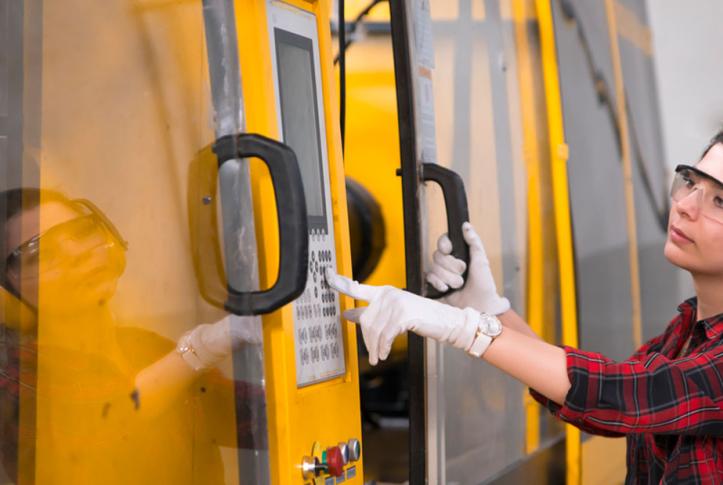Beginning in 2018, the Trump administration launched an aggressive effort to persuade states to pursue experiments under Section 1115 waivers, which allow states flexibility in the way they serve Medicaid beneficiaries. Many states have used these waivers to launch work-requirement programs that withhold coverage from most working-age, poor adults who fail to fulfill “community engagement” obligations. These obligations include documentation of nearly year-round work or other allowed activities, such as job training or volunteering for at least 20 hours per week. Some people may qualify for an exemption if they have a disability or caretaking responsibilities, for example.
As 2020 begins, Medicaid work experiments are in a state of flux. Four remain on track to move forward this year, while 16 others are in various stages of review.
Commissioners on the Medicaid and CHIP Payment and Access Commission (MACPAC) recommended halting these demonstrations. The General Accounting Office has pointed out that the work requirements produce enormous administrative costs and that the Trump administration failed to account for them in its budget neutrality estimates. A federal trial court has blocked Health and Human Services (HHS) approval twice in Kentucky, as well as in Arkansas and New Hampshire. A federal appeals court is expected rule on these lower court decisions soon.
In the meantime, some states are appearing to peel away. Kentucky’s new governor has notified the administration that he is withdrawing the state demonstration. He characterized termination of the waiver as “necessary for the health and welfare of Kentuckians” and an essential step to “prevent any budgetary shortfall that would be detrimental to the fiscal security of” his state. Michigan’s governor is trying to negotiate a halt to its proposal, although she will likely have a battle with her state legislature. Maine’s governor withdrew in early 2019, Arizona’s governor has quietly ended the state’s experiment, and Virginia’s governor has hit pause while he renegotiates the entire concept with a new legislature. Even Indiana, which has pursued other experimental eligibility restrictions — like requiring premium payments and implementing “lock-outs” or periods of exclusion for noncompliance — has suspended plans to move forward with its approved work demonstration, at least pending outcome of the court cases.
Crucially, the evidentiary ground also has shifted. Despite the fact that evaluation is a basic condition of 1115, the administration has yet to approve a single evaluation plan for state work experiments. In 2019, a groundbreaking study by Benjamin Sommers of the Harvard T. H. Chan School of Public Health and colleagues chronicled the impact of the Arkansas experiment, which resulted in 17,000 people losing coverage. The vast majority (95%) appeared to meet the work requirements or qualified for an exemption.
If the appeals court rules in favor of the administration in the Arkansas case, the landscape might alter. But the questions posed to the government during the appellate oral argument suggest that similar to the trial court, the appeals court judges were laser-focused on a central fact: a lack of evidence that the administration had considered the impact on Medicaid’s main purpose — insuring eligible people — and the extent to which the risks of the experiment would outweigh its benefits.
Despite the uncertainty, approvals continue to move forward. On December 10, South Carolina became the tenth state to receive federal approval for a work experiment, with Centers for Medicare and Medicaid Services administrator Seema Verma personally unveiling the approval in Greenville. South Carolina is the first state that did not expand Medicaid under the Affordable Care Act to be greenlighted. (Wisconsin has a not-yet-implemented work experiment and is technically not an ACA expansion state, but its demonstration does extend coverage to some low-income adults who do not fall into a traditional eligibility group.)
South Carolina is attempting to soften the impact of work requirements by increasing eligibility for Medicaid up to the federal poverty level for parents, so that families do not lose coverage because of extra income gained from employment. At the same time, because the work requirements apply to people now receiving benefits, not just new applicants, coverage could potentially be disrupted for hundreds of thousands as cases are redetermined. Redeterminations on such a vast scale could trigger disruption or loss of coverage because of confusion regarding who is covered and exempt. What’s more, there is no evidence that either the state or Trump administration considered the spillover effects on children’s health and health care, despite research showing a link between parental Medicaid enrollment and children’s use of health care.
In the meantime, the administration’s approval letters grow more emphatic about the value of the demonstrations both for population health and program sustainability, despite the fact that courts have raised concerns about the merits of these claims and the absence of causal evidence connecting work to health. The approval letters continue to lack the thing that matters most — a forthright analysis of the impact of the experiments on coverage and a reasoned argument about why the benefits of the experiments outweigh coverage losses.
It is not clear whether more legal challenges wait in the wings, but the forthcoming appeals court decision will reverberate nationwide.





